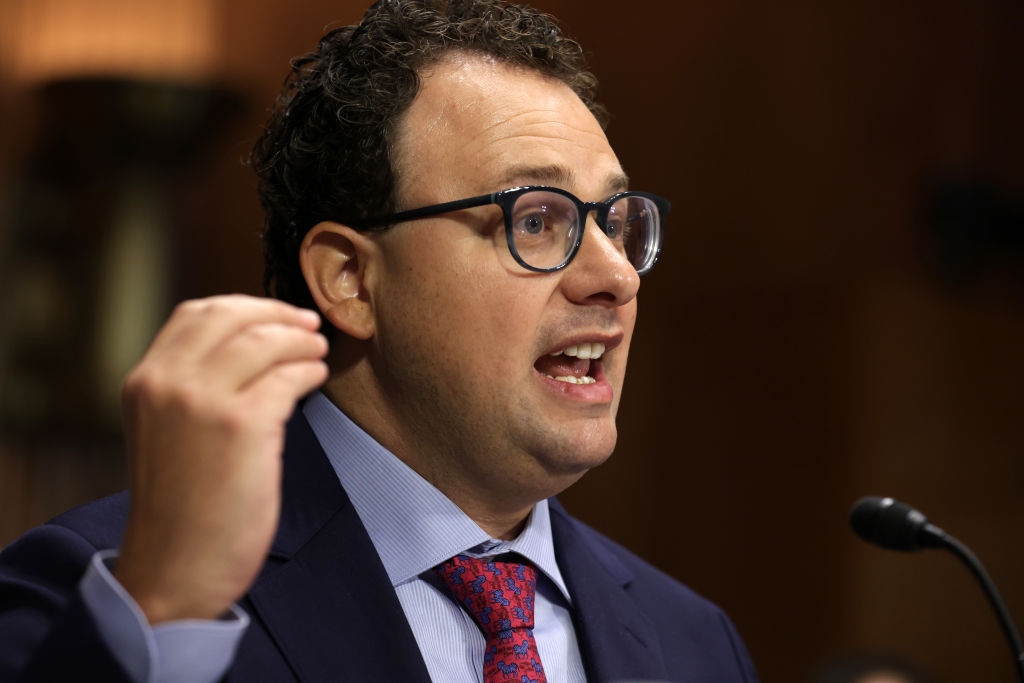
During a recent quarterly earnings call, Coinbase CEO Brian Armstrong introduced an unexpected element of drama, openly acknowledging his engagement with online prediction markets tracking the event. This unconventional move, which saw Armstrong deliberately utter specific keywords to influence market outcomes, has sparked a vigorous debate within the financial and cryptocurrency communities regarding market manipulation, corporate conduct, and the integrity of nascent digital betting platforms.
The Unscripted Revelation
The incident unfolded towards the conclusion of Coinbase’s third-quarter earnings call. Armstrong, a prominent figure in the cryptocurrency industry, confessed to being "a little bit distracted" by his observation of prediction markets focused on the very call he was participating in. He then proceeded to intentionally list a series of terms: "Bitcoin, Ethereum, Blockchain, Staking, and Web3." This seemingly innocuous recitation was, in fact, a calculated act designed to fulfill specific conditions on "mention markets," where participants wager on whether certain words will be spoken during public company announcements.
This deliberate interjection immediately drew attention, not least because it directly affected the financial outcomes for individuals who had placed bets on these platforms. While the act might have been perceived by some as a playful acknowledgment of market dynamics, it simultaneously illuminated a significant vulnerability within the burgeoning prediction market ecosystem.
Unpacking Prediction Markets
Prediction markets are speculative markets created for the purpose of making predictions. Participants trade shares or contracts whose final value is tied to the outcome of future events. The prices of these contracts can then be interpreted as probabilities of the event occurring, offering a mechanism for aggregating information and collective wisdom. They operate on a principle similar to traditional financial markets, but instead of trading stocks or commodities, users trade contracts representing a "yes" or "no" outcome to a specific question, or the likelihood of an event transpiring.
Historically, prediction markets have been utilized in various contexts, ranging from academic research tools like the Iowa Electronic Markets (established in 1988 to predict political election outcomes) to internal corporate forecasting. Their appeal lies in their potential to distill diverse information into a single, quantifiable probability, often outperforming expert opinions or polls in forecasting accuracy. The rise of blockchain technology has breathed new life into these markets, enabling decentralized platforms that promise greater transparency, censorship resistance, and accessibility compared to their centralized predecessors. Platforms like Kalshi and Polymarket, mentioned in connection with Armstrong’s actions, represent this new wave, leveraging digital infrastructure to facilitate betting on a wide array of future events, from economic indicators to entertainment outcomes.
"Mention markets," a niche within this broader category, allow users to bet on the occurrence of specific phrases or words in public statements. These markets typically attract smaller betting volumes but highlight the granular level of events that can be monetized. In the context of Coinbase’s earnings call, approximately $84,000 had been wagered across these platforms concerning the inclusion of specific cryptocurrency-related terminology.
A CEO’s Calculated Gambit
Armstrong’s decision to vocalize the keywords was not accidental; it was a direct response to his awareness of these mention markets. By doing so, he directly influenced the settlement of various contracts, leading to payouts for those who had bet that these words would indeed be uttered. While some might view this as a lighthearted gesture, others quickly pointed to the serious implications of a CEO, particularly one of a publicly traded company, actively interfering with markets, however small, tied to their own corporate communications.
The act raised questions about the boundaries of executive conduct and the potential for perceived market manipulation. For participants in these markets, Armstrong’s intervention transformed what should have been an unpredictable outcome into a certainty, undermining the fundamental premise of speculative betting. This incident underscored the fragility of market integrity when key figures possess the power to unilaterally dictate outcomes.
Industry Reactions and Ethical Quandaries
The immediate aftermath saw swift and varied reactions from the cryptocurrency and financial communities. Jeff Dorman, Chief Investment Officer at digital assets investment firm Arca, was among the most vocal critics. He took to social media to express his strong disapproval, asserting that anyone who viewed Armstrong’s actions as "cute or clever or savvy" needed "their head examined." Dorman argued that such conduct openly manipulated a market and was detrimental to the broader efforts of institutional investors and industry professionals striving to legitimize crypto as a serious asset class. He highlighted the extensive work involved in educating traditional finance about the value of crypto investing and the challenges posed when industry leaders engage in what he perceived as mocking behavior.
Polymarket, one of the platforms impacted, also weighed in, albeit with a touch of irony, describing Armstrong’s comments as "diabolical work." This reaction, while playful, tacitly acknowledged the disruptive nature of the CEO’s intervention. The sentiment across the industry was largely divided between those who saw it as a harmless prank or a clever stunt, and those who viewed it as a serious breach of ethical conduct, potentially damaging the credibility of both Coinbase and the wider crypto ecosystem.
At the core of the controversy lies the ethical dilemma of a public figure deliberately influencing a market, regardless of its size or perceived triviality. While traditional financial markets have stringent regulations against insider trading and market manipulation, the nascent and often unregulated landscape of prediction markets, especially those leveraging decentralized technologies, presents a new frontier for such challenges. The incident served as a stark reminder that the principles of market integrity, fairness, and transparency are paramount, irrespective of the specific market type.
The Broader Context of Crypto and Prediction Markets
The intersection of cryptocurrency and prediction markets is a fascinating and evolving area. Blockchain technology, with its inherent transparency, immutability, and decentralized nature, offers a compelling infrastructure for prediction markets. Decentralized prediction markets, or dPMs, aim to remove intermediaries, reduce fees, and offer greater resistance to censorship and manipulation compared to their centralized counterparts. This aligns well with the broader ethos of decentralization prevalent in the crypto space.
Historically, prediction markets have often faced regulatory scrutiny, particularly in jurisdictions like the United States, where they can sometimes be categorized as illegal gambling or unregulated financial products. Regulators, such as the Commodity Futures Trading Commission (CFTC) and the Securities and Exchange Commission (SEC), have grappled with how to classify and oversee these platforms. Kalshi, for instance, operates as a CFTC-regulated exchange for "event contracts," seeking to differentiate itself from pure gambling by focusing on verifiable, objective future events. Polymarket, on the other hand, has faced regulatory challenges regarding its offerings. The legal and regulatory landscape for these markets remains murky, creating an environment where novel actions like Armstrong’s can expose vulnerabilities and force a re-evaluation of existing frameworks.
Coinbase’s Dual Role
Compounding the complexity of the situation is Coinbase’s strategic positioning within the prediction market space. The cryptocurrency exchange giant is not merely an observer but an active participant and investor. Coinbase has reportedly invested in both Kalshi and Polymarket, the very platforms impacted by Armstrong’s actions. Furthermore, Coinbase itself is reportedly developing its own "Everything Exchange," which Armstrong mentioned during the same earnings call, signaling the company’s ambition to move into supporting prediction markets directly.
This dual role creates a potential conflict of interest. As an investor and aspiring operator in the prediction market space, Coinbase has a vested interest in the growth and legitimacy of these platforms. Yet, the CEO’s public demonstration of influencing these markets, even if intended humorously, could inadvertently undermine the very trust and regulatory acceptance essential for their long-term success.
In response to the controversy, a Coinbase spokesperson clarified that the company strictly prohibits its employees from participating in prediction markets or related activities concerning Coinbase itself. This internal policy highlights an awareness of the ethical sensitivities involved, yet it contrasts sharply with the CEO’s public behavior, which, despite his subsequent explanation of spontaneity, raised eyebrows about corporate governance and leadership accountability. Armstrong later clarified on X (formerly Twitter) that his action was "fun" and "happened spontaneously when someone on our team dropped a link in the chat," suggesting an unplanned, spur-of-the-moment decision rather than a premeditated scheme.
The Implications for Market Integrity and Corporate Conduct
The incident with Brian Armstrong and the prediction markets serves as a potent case study on the evolving challenges at the intersection of traditional corporate communications, new digital financial instruments, and the public persona of tech leaders. It forces a critical examination of what constitutes market manipulation in an era where information spreads instantly and digital markets can be influenced by seemingly trivial acts.
For the cryptocurrency industry, which has long battled perceptions of instability and a lack of regulatory oversight, such incidents can be particularly damaging. Efforts to build trust with mainstream financial institutions and retail investors rely heavily on demonstrating adherence to high standards of conduct and market integrity. When a prominent CEO appears to flout these unwritten rules, it can erode confidence and reinforce negative stereotypes.
Moving forward, this event may prompt prediction market platforms to reconsider their terms of service, potentially introducing new mechanisms to prevent or mitigate executive influence. It also underscores the ongoing need for clear ethical guidelines for corporate executives navigating an increasingly interconnected digital landscape. While the precise financial impact of Armstrong’s actions on the overall market was likely minimal, the symbolic weight of a CEO deliberately influencing even a small market is significant. It opens a broader conversation about accountability, transparency, and the delicate balance between playful engagement and maintaining the sanctity of market processes in the digital age. The debate surrounding this incident is a testament to the complex ethical terrain that companies and their leaders must navigate as they push the boundaries of finance and technology.







